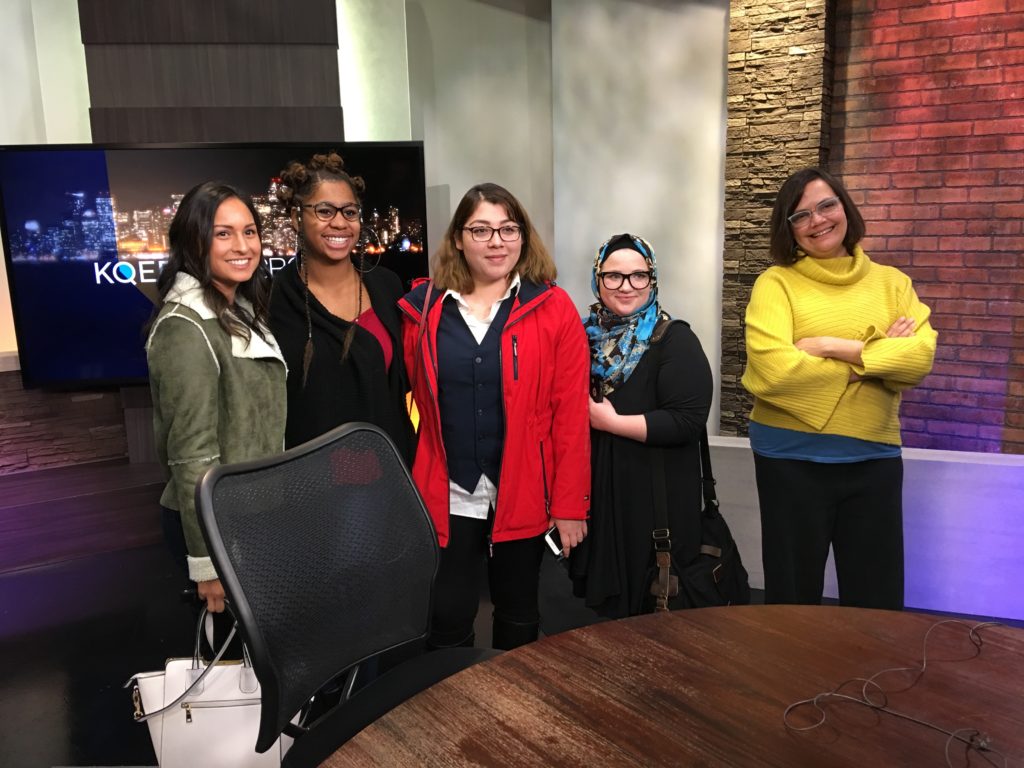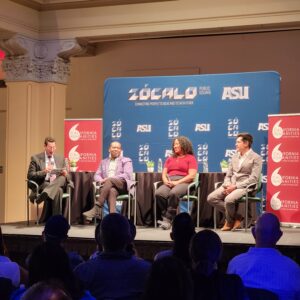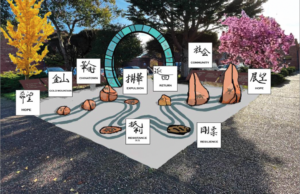What happens when you bring together bright and engaged students from four different counties representing the diversity of California, to talk about the future of our state and of media? On December 6 and 7, at the CA 2020: Democracy and the Informed Citizen Media Summit, we got to find out. Students from Foothill and De Anza Colleges in Silicon Valley, San Diego City College, Shasta College in Redding, and Bakersfield College and South Kern Sol came together for two days. The students from the four campuses had the incredible opportunity to make connections, reflect on questions of media literacy and their role as emerging journalists and storytellers and to learn practical skills from professional journalists and from one another.
CA 2020: Democracy and the Informed Citizen is a year-long partnership with California community colleges. The program is designed to engage a broad cross-section of young Californians in making critical connections between democracy and journalism by bringing Pulitzer Prize-winning journalists to California campuses and providing hands-on media literacy training, helping to amplify young people’s voices and perspectives in the public dialogue.
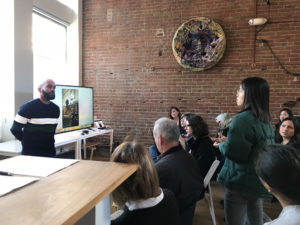
On a bright Thursday, December 6, 35 students along with their faculty advisors and mentors met at StudioToBe in Oakland for facilitated group discussions about media literacy and journalism led by Joaquin Alvarado. Born and raised in Oakland, Joaquin is one of the three co-founders of StudioToBe, a content development and production studio, co-working space, and eventual restaurant and community media hub. Joaquin provided a rousing introduction to the day, drawing upon his 20+ years of innovative media-making. He touched on the crisis in journalism with the number of reporters in more rural parts of the state dwindling, and highlighted the diversity of the state’s young people, asking the students which different languages they spoke (the total: thirteen; we didn’t catch them all, but among them: American Sign Language, Hmong, German, Russian-Ukrainian, and Mandarin).
Students reflected on their takeaways from CA 2020: On Immigration and Journalism public forums with Pulitzer Prize-winning journalist Sonia Nazario, who spoke in Bakersfield, San Diego, and San Jose earlier this year—in February, she’ll be making her final appearance at Shasta College in Redding. One student named Christian said, “considering all the context of her background, all the immigrant kids coming over here, she still maintained that professional level and integrity, and kept her bias out of the story.” That led to an engaging discussion among the students and Joaquin about the role of bias in journalism—can journalism ever truly be bias-free?
The question of bias came up again in the afternoon presentation by guest speaker Pendarvis Harshaw, a journalist and educator from Oakland and recent recipient of the Emerging Journalist of the Year Award from the Society of Professional Journalists. As an arts and culture columnist for KQED, Pendarvis explained, he was able to share his distinct point of view, as opposed to a strictly news journalist who would have to present more objectivity in their work. He shared a sampling of the kinds of stories he’s been able to cover as a freelancer, from a story about the strange things that can be found at the bottom of Oakland’s Lake Merritt, to the role that leaving the Bay can play in enhancing Oakland-based rappers’ careers. His personal project, OG Told Me, based on interviews with older Black men, documents their wisdom and reflects on his own identity and position in the community as he moves through his career and life. Students had more questions for Pendarvis than he had time to answer. As he left, he made an offer of staying in touch and being a resource to them as they continue learning and exploring the field of journalism.
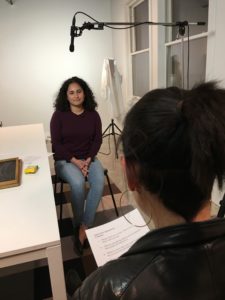
The day also included report-outs by each campus on their CA 2020 activities, small facilitated group discussions focused on digital journalism and podcasting; hands-on in-the-field reporting exercises; and a screening of the California Humanities-supported and Academy Award-nominated film, Last Day of Freedom, followed by a conversation with filmmaker Nomi Talisman. Throughout, the students were enthusiastic and demonstrated a fierce commitment to engaging with the questions and activities presented to them.
On Friday the group visited Bay Area public media station KQED, where students had the opportunity to sit in on and observe a newsroom editorial meeting, tour the television and radio production facilities, and have the opportunity to speak with radio, television and digital reporters about their career paths, their work and opportunities in the field.
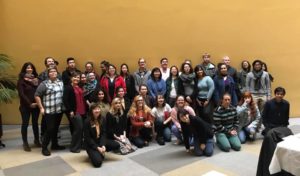
Throughout, students had the opportunity to make connections that will extend beyond the two days of this inaugural summit, including an offer of ongoing connection with KQED staff and reporters and the potential for summer internships and other opportunities at KQED.
CA 2020 is funded in part by the Andrew W. Mellon Foundation’s Democracy and the Informed Citizen Initiative, in partnership with the Pulitzer Prizes and administered by the Federation of State Humanities Councils. California Humanities is grateful to the Stuart Foundation, Panta Rhea Foundation, The Virginia and Alfred Harrell Foundation, The McConnell Foundation, the Parker Foundation, Nordson Corporation Foundation, Knight Foundation Fund and the California Arts Council for their support of the CA 2020 initiative.

